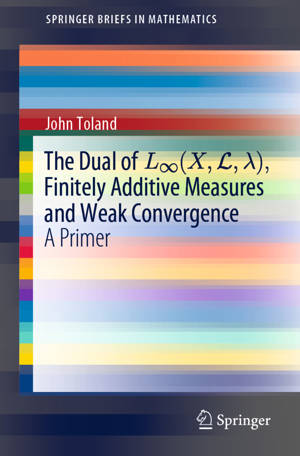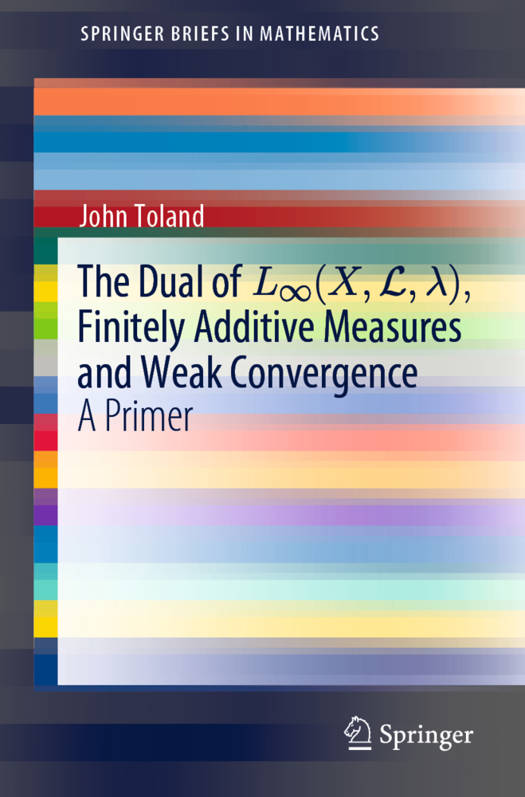
- Retrait gratuit dans votre magasin Club
- 7.000.000 titres dans notre catalogue
- Payer en toute sécurité
- Toujours un magasin près de chez vous
- Retrait gratuit dans votre magasin Club
- 7.000.0000 titres dans notre catalogue
- Payer en toute sécurité
- Toujours un magasin près de chez vous
Description
In measure theory, a familiar representation theorem due to F. Riesz identifies the dual space Lp(X, L,λ)* with Lq(X, L,λ), where 1/p+1/q=1, as long as 1 L∞(X, L,λ)* cannot be similarly described, and is instead represented as a class of finitely additive measures.
This book provides a reasonably elementary account of the representation theory of L∞(X, L,λ)*, examining pathologies and paradoxes, and uncovering some surprising consequences. For instance, a necessary and sufficient condition for a bounded sequence in L∞(X, L,λ) to be weakly convergent, applicable in the one-point compactification of X, is given.
With a clear summary of prerequisites, and illustrated by examples including L∞(Rn) and the sequence space l∞, this book makes possibly unfamiliar material, some of which may be new, accessible to students and researchers in the mathematical sciences.
Spécifications
Parties prenantes
- Auteur(s) :
- Editeur:
Contenu
- Nombre de pages :
- 99
- Langue:
- Anglais
- Collection :
Caractéristiques
- EAN:
- 9783030347314
- Date de parution :
- 07-02-20
- Format:
- Livre broché
- Format numérique:
- Trade paperback (VS)
- Dimensions :
- 156 mm x 234 mm
- Poids :
- 167 g

Les avis
Nous publions uniquement les avis qui respectent les conditions requises. Consultez nos conditions pour les avis.






